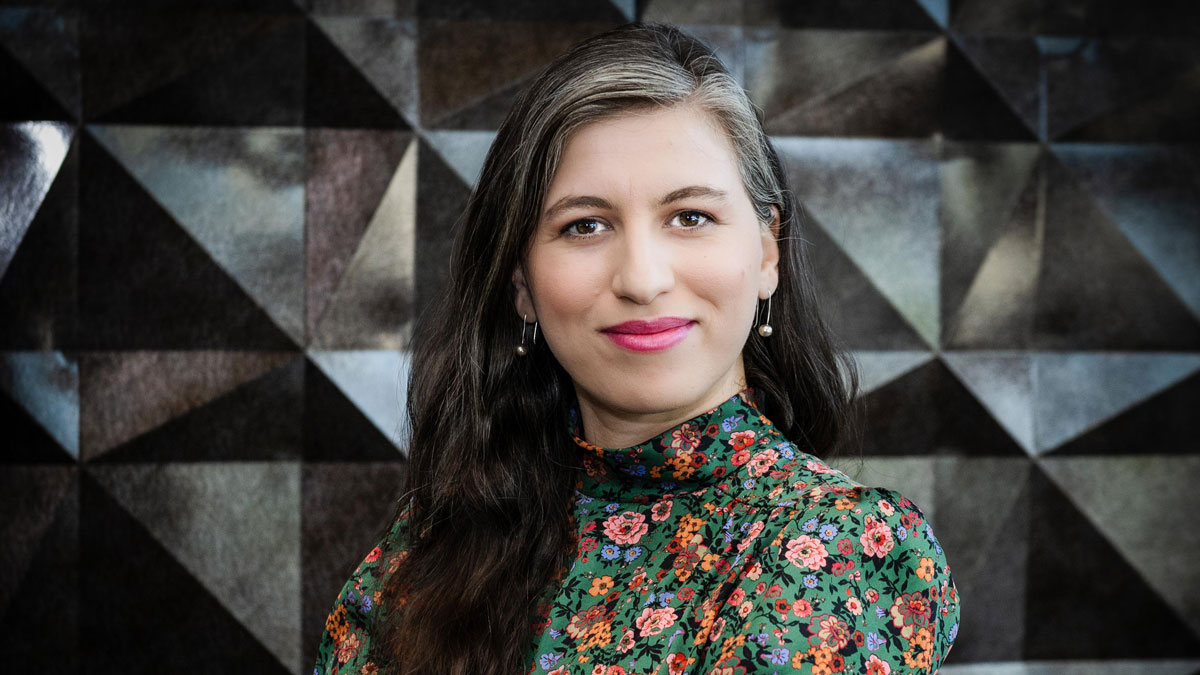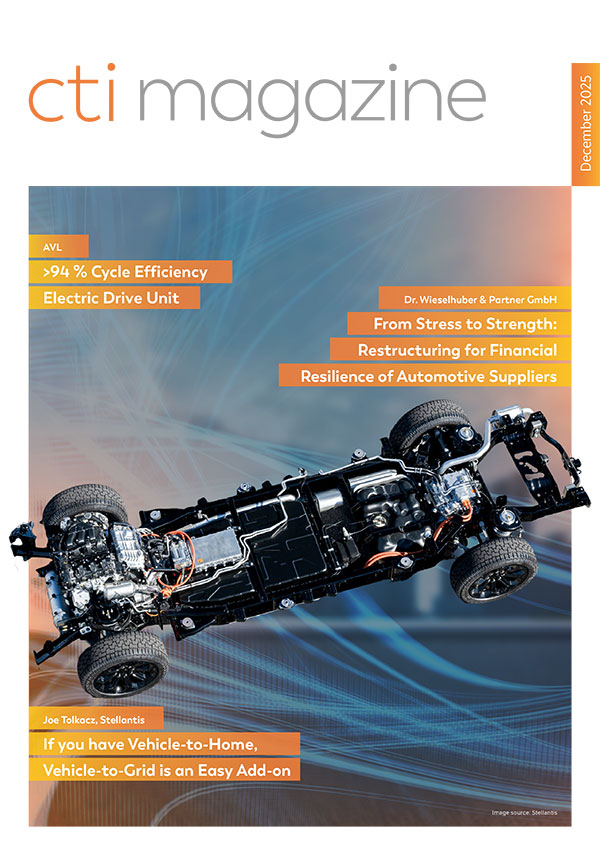
At the 2024 USA CTI Symposium in Novi, the ‘Female Session’ – organized by CTI and the AWA foundation – took place for the first time. We spoke to Sarah Zitouni, Director of Hybrid Powertrain Strategy at Aurobay, who shared her experience as a speaker in the session.
Ms Zitouni, what were the goals of the first Female Session at the CTI symposium last May?
The interest in having a dedicated female session at an international conference is at least twofold. Firstly, it’s essential to demonstrate the presence of women to one another. It can feel isolating to sit in a room with 360 chairs, like we have at CTI, and not see another woman nearby. Therefore, it’s important to encourage women to attend more of these events. Being a pioneer is never easy. The second aspect is that this session provides an opportunity for networking and exchanging information, which can benefit our companies. Connections made among women in the industry may be stronger than those formed otherwise.
What was your role, and how did you contribute to the session?
One session in particular, the one I proposed, focused on how to become a speaker at events. If we look at the CTI program now, despite the organizers’ best efforts, there are still very few female speakers. Few panelists are women, and none of the chairs are held by women. We need to increase these numbers, and this requires a collective effort from everyone. My contribution to this effort, as a speaker at Novi, was to share how I got here, how can you prepare your presentation, and how can young female engineers become the next speakers at CTI.
What can the younger generation do better to get there?
That’s the key aspect, the significance of diversity. Diversity brings different opinions and perspectives into the room, which is crucial in today’s world – a world undergoing the fastest transition any of us have ever experienced. Solving these complex issues requires more minds and greater diversity. We need to open up the room and share speaking opportunities with a broader range of people because they will bring new insights to the table that we haven’t heard before.
How do you experience the drive to get more female engineers into powertrain development?
I think it varies greatly from company to company. I’ve seen some companies take a very active role and make real progress. Let me give you a number: more diverse companies have turnovers and profits that are eight percent higher than those of less diverse companies. So there’s literally money in diversity. Some companies are leading the way in this regard. I know of some that have increased their share of female engineers from 20 to 40 percent, which is almost at parity – an impressive achievement. On the other hand, some companies still seem to rely on things happening on their own. They say, „We don’t discriminate,“ and hope that will be enough. But it requires an active approach – to actively seek out talent and to demonstrate through role models that being a woman in the automotive industry is normal.
Speaking of diversity, what was the reason for launching the Female Session as an exclusively female group?
The need for a non-mixed conversation, or a conversation in a non-open setting, stems from the freedom of speech it allows. The truth is that when you’re in a group with a shared understanding, discussions, stories, and ideas flow more easily. Several studies have shown that even adding just one man to the group, even if he’s an ally and supportive, can stifle that flow of thoughts, making it harder to share difficult experiences. It’s a bit like what happens with unions – they also gather among themselves. Based on those discussions, it’s then productive to have conversations with management and other stakeholders. This is the same idea.
For me as a boy, a long time ago, it seemed natural to be interested in technical things. How do girls find out they are interested too, and have the talent?
Many studies show that girls begin to underestimate themselves as early as age four, so it’s crucial to address this issue early on. All games and activities related to STEM subjects – science, technology, engineering, and math – should be equally targeted at both boys and girls from a young age. It’s important to continue fostering interest in these topics. We should also highlight role models, as CTI is doing, by showcasing those who are already succeeding in these fields. When we show that women can be inventors, creators, directors, or CEOs, it helps normalize that image in everyone’s mind, for both boys and girls, and opens up perspectives that may not exist today.
How has your own career path been, and what suggestions do you have for others?
My journey in the automotive industry has been quite bumpy. I dreamt of playing with big cars since I was four years old. When my dad explained how a combustion engine worked, I couldn’t understand why all kids weren’t fascinated by it. Every decision I made during my studies was aimed at getting to where I am now. But at every step in my career, I encountered people who told me that what I was doing was uncommon or even not allowed. My ambition is for the next generation to have the freedom to pursue whatever they want. So, my advice is not to listen to those who say it’s impossible. There are many role models in the industry – Mary Barra is one of them. Another piece of advice: build a strong network early on, including experienced women, because that network can help you progress.
Interview: Gernot Goppelt
